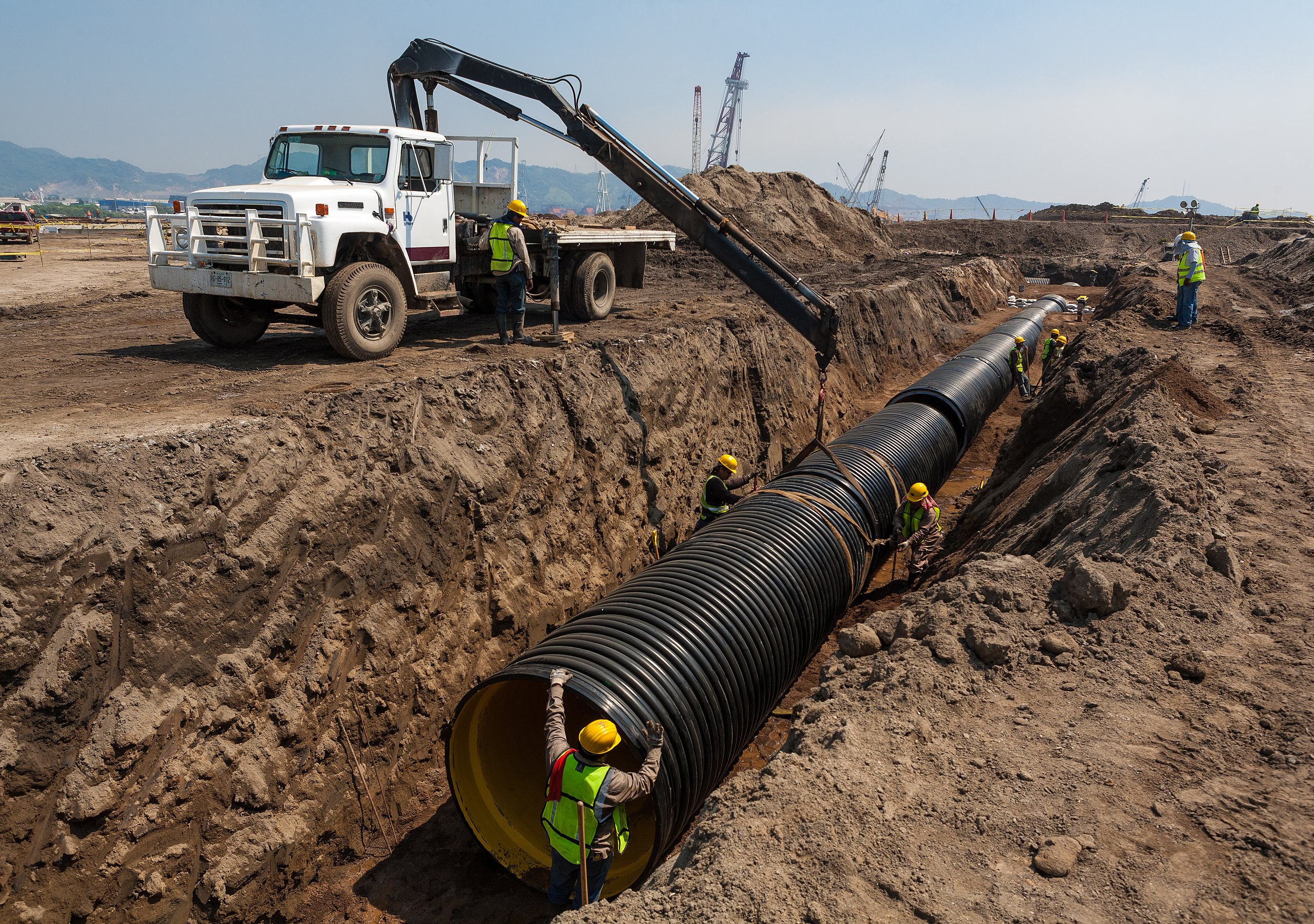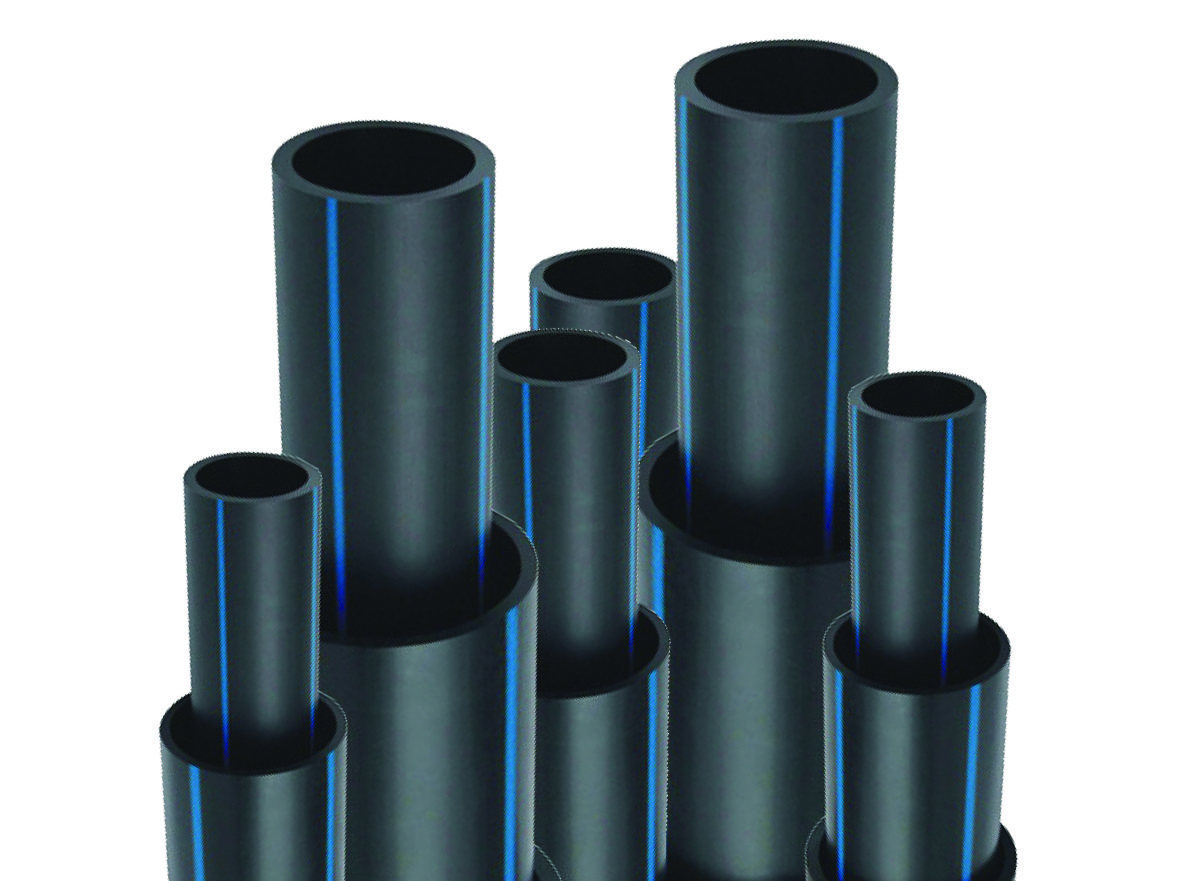Recognizing the Trick Perks of HDPE Pipe for Water and Wastewater Management
The usage of HDPE pipeline in water and wastewater administration offers various benefits that merit factor to consider. Its exceptional longevity and lengthy lifespan make it a favored selection for lots of jobs. Additionally, the product's resistance to corrosion and chemical damage improves its reliability in different settings. Nevertheless, the benefits extend past simply durability and resistance. Exploring its cost-effectiveness and environmental influence exposes much more compelling factors for its extensive fostering in modern facilities
Phenomenal Sturdiness and Long Life

HDPE pipe sticks out for its extraordinary longevity and long life, making it a preferred choice in water monitoring systems. Constructed from high-density polyethylene, these pipelines can stand up to considerable stress and anxiety, making certain reliable efficiency with time. Their durable nature permits them to sustain severe environmental conditions, consisting of temperature level variations and soil motions, which can cause other products to fall short.
The life expectancy of HDPE pipes typically surpasses half a century, supplying an affordable remedy for districts and sectors alike. Additionally, the material's lightweight properties simplify installation, reducing labor costs and durations. This sturdiness lessens the requirement for regular fixings or substitutes, further boosting its financial allure.
In water monitoring applications, the reliability of HDPE pipes suggests less disruptions and enhanced service continuity, making them integral to sustainable infrastructure growth. The combination of sturdiness and longevity solidifies HDPE's role as a keystone in efficient water monitoring services.

Resistance to Rust and Chemical Damages
While numerous materials catch rust and chemical damage with time, HDPE pipes show remarkable resistance, making them ideal for numerous water administration applications. This resilience originates from the molecular framework of high-density polyethylene, which is inherently non-reactive and does not wear away like steels or degrade from direct exposure to severe chemicals. Therefore, HDPE is very efficient in atmospheres with aggressive compounds, such as wastewater systems that may contain acids, bases, and organic solvents.
In addition, HDPE pipes can withstand ecological aspects such as soil acidity and saline problems, even more boosting their suitability for diverse applications (custom hdpe pipe manufacturing Midland TX). Their ability to preserve architectural integrity over time minimizes the danger of leakages and failures, which is crucial in making certain the security and dependability of water circulation and wastewater management systems. As a result, the resistance to deterioration and chemical damage markedly contributes to the general efficiency and long life of HDPE piping services
Cost-Effectiveness and Economic Benefits
When taking into consideration the economic ramifications of water administration systems, the cost-effectiveness of HDPE pipelines comes to be noticeable. These pipelines supply reduced installment and maintenance prices compared to conventional materials like steel or concrete. Their light-weight nature simplifies transportation and setup, resulting in minimized labor expenditures. Additionally, HDPE pipelines show a lengthy life expectancy, continue reading this often exceeding half a century, which translates to fewer replacements and lasting financial savings.
The resistance of HDPE to deterioration and chemical damages minimizes the need for pricey repair work and replacements. The pipelines likewise sustain efficient water flow, lowering energy prices connected with pumping systems. By reducing leakages and water loss, HDPE pipes add to significant financial advantages for municipalities and markets alike. In general, the initial financial investment in HDPE piping can yield substantial economic returns over the life expectancy of the water management system, making it a sensible choice for lasting facilities development.
Environmental Sustainability and Minimized Influence

Versatility and Adaptability in Installment
Due to their one-of-a-kind properties, HDPE pipelines offer remarkable flexibility and adaptability in installation, making them appropriate for a variety of applications. Their lightweight nature permits easier handling and transportation, minimizing labor costs and installation time. HDPE pipelines can be bent and shaped to fit different surfaces and job requirements, which is specifically valuable in testing environments.
Furthermore, their resistance to rust and chemical damages permits for installation in diverse settings without the need for specialized safety layers. The ability to fuse joints produces a continuous, leak-free system, boosting the overall integrity and reliability of the setup. trenchless pipe lining HDPE's adaptability additionally suits ground movement, reducing the danger of damage in areas prone to moving dirt. Generally, these characteristics make HDPE pipes not only flexible yet also a recommended selection for water and wastewater administration systems.
Often Asked Concerns
How Does HDPE Pipeline Contrast to PVC in Water Management Applications?
HDPE pipeline uses premium flexibility, resistance to deterioration, and durability compared to PVC. Its lighter weight assists in simpler installment, while its lengthy life-span minimizes replacement expenses, making HDPE a recommended selection in water management applications.
What Is the Lifespan of HDPE Pipes Under Regular Conditions?
Under common conditions, HDPE pipes can have a lifespan ranging from 50 to 100 years. Their resilience and resistance to rust add to their long-term performance in different applications, making them a reputable choice for infrastructure.
Are HDPE Water Lines Recyclable After Their Life Span?
Yes, HDPE pipes are recyclable after their life span. Midland TX HDPE Pipe Fittings in Stock. They can be processed and repurposed right into brand-new items, substantially lowering environmental effect and advertising sustainability within the sector, making them an eco-friendly selection for piping solutions
What Is the Installment Process for HDPE Water Lines?
The setup process for HDPE pipelines involves website preparation, trenching, pipe blend or mechanical signing up with, backfilling, and stress screening. Appropriate methods guarantee a sturdy and effective system for transferring water and wastewater efficiently.
Can HDPE Pipeline Be Made Use Of for Both Drinkable and Non-Potable Water Solutions?
Yes, HDPE pipes can be utilized for both safe and clean and non-potable water systems. Their flexibility, resilience, and resistance to deterioration make them suitable for different applications, ensuring secure and effective transportation of water in different contexts.